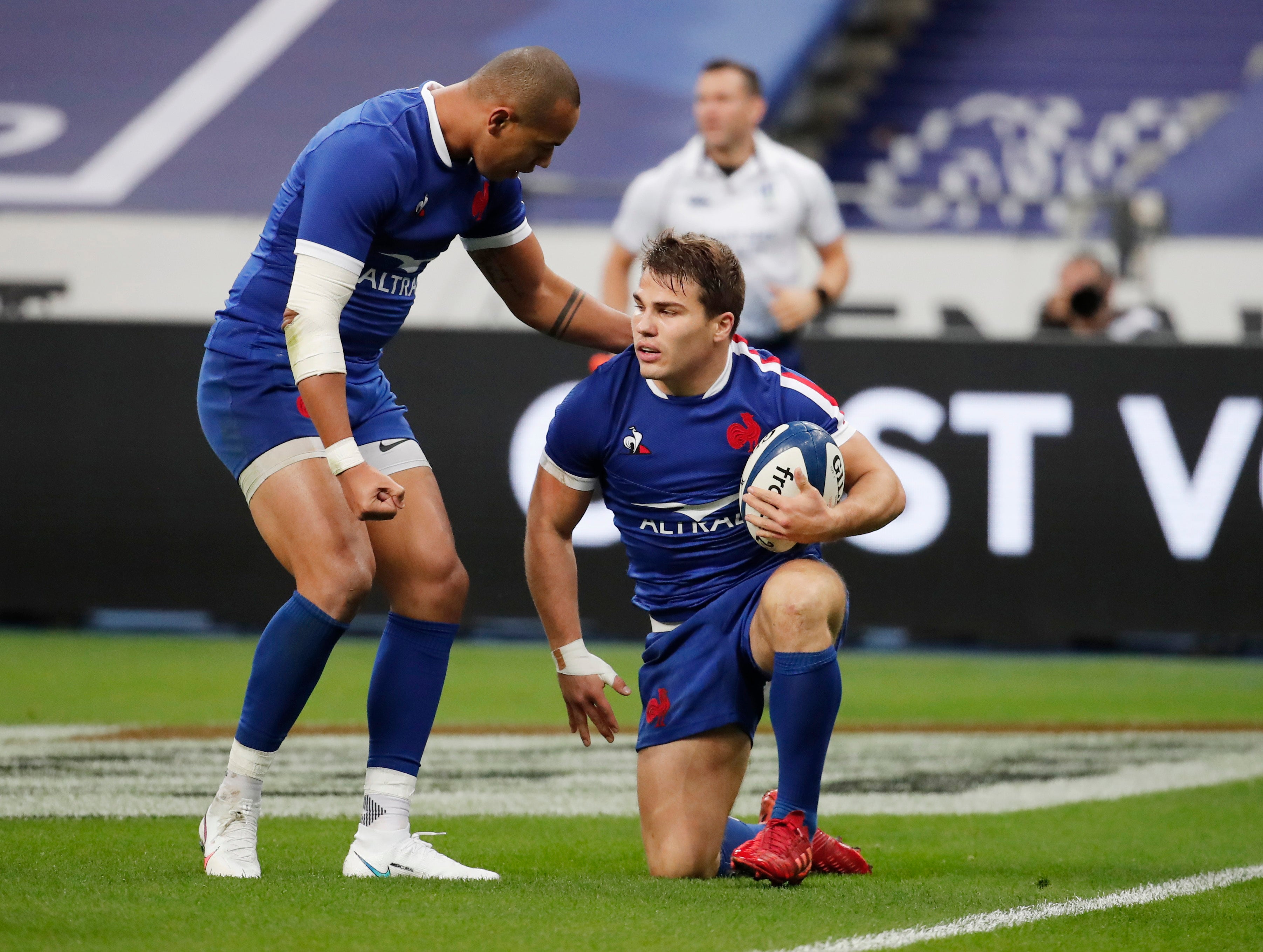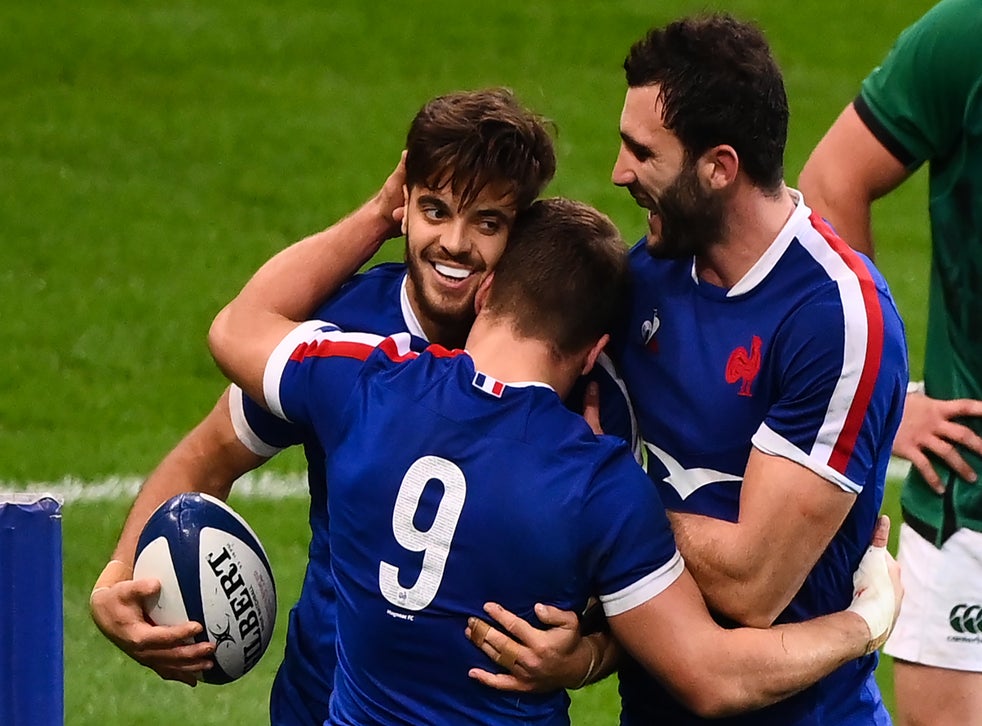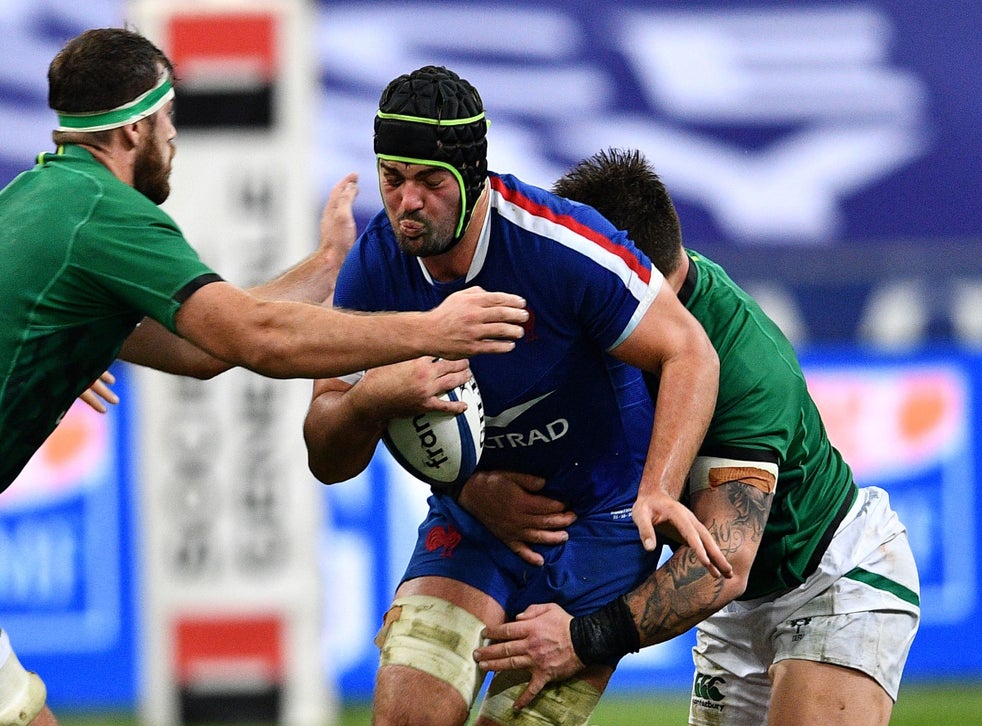
The '10s were a strange time for French rugby. The emergence of the Top 14 as rugby’s financial powerhouse coincided with a bizarre slump for their national team. The decade started with a Six Nations Grand Slam and a Rugby World Cup final, yet ended with Les Bleus desperate for something of a revolution.
There were enough signs in Japan last year that there may just be something special brewing across the Channel, though the Rugby World Cup proved too early to tell if their young half-back pairing of Antoine Dupont and Romain Ntamack really were the real deal.
But a year on from that point, there is no longer any doubt.
Dupont and Ntamack are among the Six Nations Player of the Championship alongside teammate Gregory Alldritt, as well as England pair Maro Itoje and Ireland back row CJ stander. There is an argument to be had that all three Frenchmen should take the award, such were their performances across the Six Nations this year, and though they missed out on the Championship in Saturday’s final round, the smart money is on one of them claiming the prestigious gong.
That is not really the exciting part though. In just under three months’ time, France will hope to be appearing in another World Cup final - this time on home soil. When France were awarded the next tournament hosting rights in 2017, it was a genuine fear that the home favourites would be something of a laughing stock on the global stage.
The decade has basically been the story of France’s demise as a rugby heavyweight. An influx of foreign talent within the league had given clubs great success in Europe, but at a very obvious cost of the national team. 2013 brought the embarrassment of finishing last in the Six Nations, having suffered their second loss in three years to Italy. Defeat against Italy? The thought is unthinkable these days.
French rugby needed a change, and it came shortly before the 2019 World Cup. Fabien Galthie, the man who would take over from Jacques Brunel, was added to the coaching staff to bring some sort of continuity and to give the team’s development something of a head start. It is a decision that has worked wonders.
Brunel, it must be said, has played his part in this rejuvenation, despite being a significant part of their initial stagnation. In his first 12 months in charge of Les Bleus, Brunel won just three of his 10 matches in charge. Predecessor Guy Noves, who came and went in a blaze of glory, won just four. Galthie’s side took four wins from five Six Nations matches as well as the friendly win against Wales, and cost themselves victory in the fifth against Scotland through their own ill-discipline as Mohamed Haouas landed himself a red card for attempting to rearrange Jamie Ritchie’s face. They still have four more games to play before the year is out.

This investment in Galthie, Dupont, Ntamack and the future is paying off handsomely for French rugby, and the daunting thing for their rivals is they know themselves they are only just getting started.
“We won convincingly against Ireland with a try-scoring bonus,” said Galthie. “(They) had beaten us eight times in the last nine games.
“We are a young team that has put 35 points to an Irish team that has been up there with the best of the world for several years. It’s satisfying.
“When we took charge of the team, we said our goal was to win matches quickly. That’s what we have done with five wins in six games. Our goal was also to win titles. England won (this tournament), but this is just the beginning of the story.”
Of course, it wouldn’t be French rugby without a civil war to report, but even that fizzled out into a mutual agreement where the French Rugby League (LNR) saw their concerns over the number of internationals eased with an agreement to limit players to a maximum of three appearances this summer. With many doubling up in the tune-up over Wales and the defeat of Ireland, Galthie will have one hand tied behind his back throughout the Autumn Nations Cup, although it could yet do wonders for their squad depth to put them in a very strong position ahead of next February’s Six Nations.

What last year’s World Cup showed us is that South Africa, New Zealand and England appear to have built something of a gap to the rest of the chasing pack. Ireland are not the same side as they were in their all-conquering 2018 campaign, while Wales are jammed in reverse as they adjust to life under Wayne Pivac. Australia are also in a transition period while Scotland make small but steady gains.
But France look like genuine contenders to make the top three a top four, which will do wonders for the country ahead of a home World Cup and cause a great deal of concern among their rivals given they sit in Band Two of the World Cup draw next month, meaning they will be guaranteed a spot in a pool alongside the Springboks, All Blacks, England or Wales. Now that is something to get excited about.







